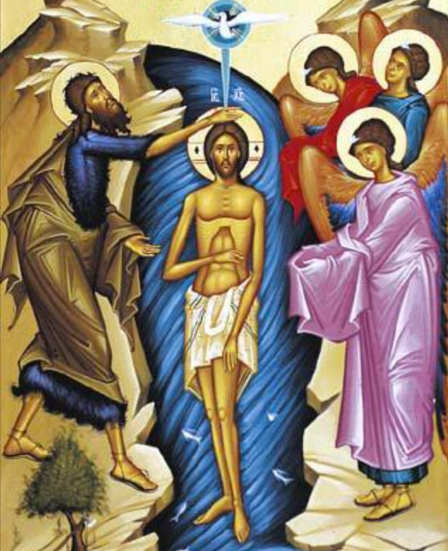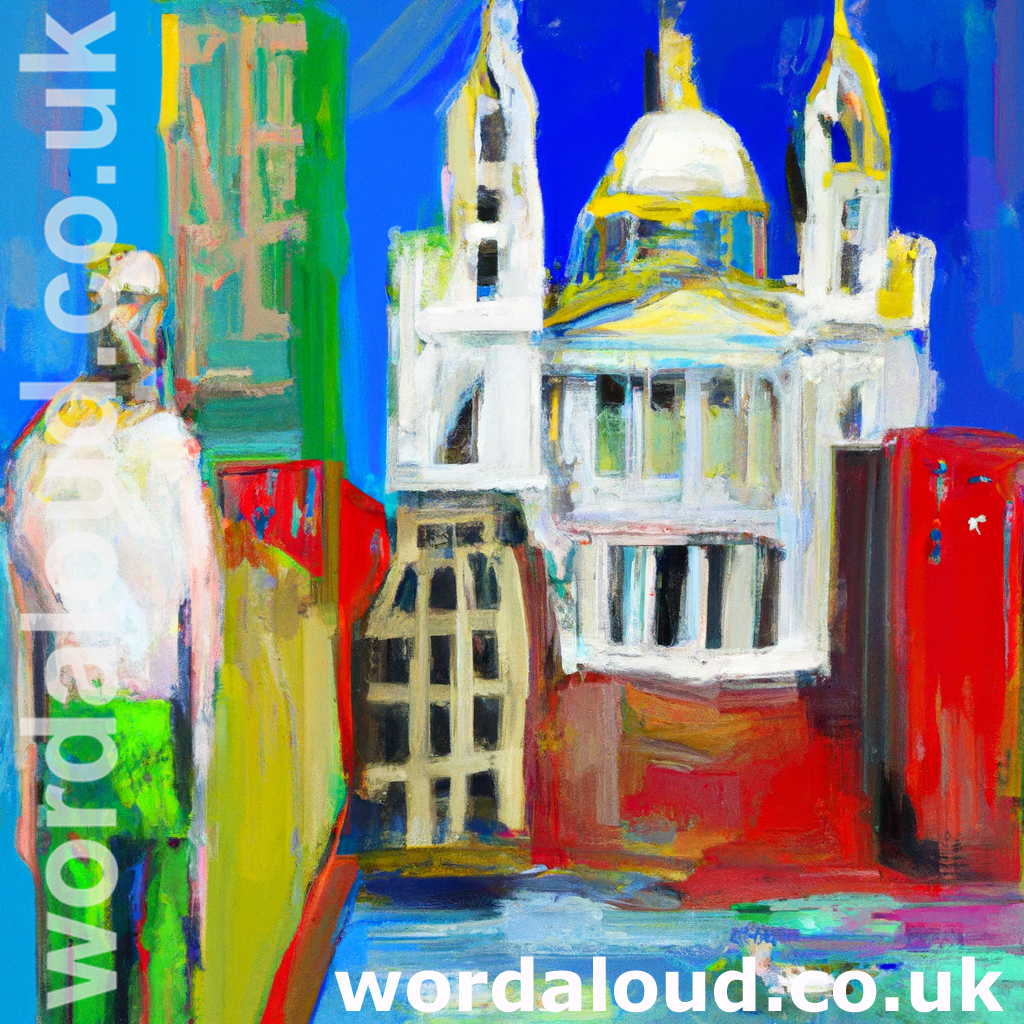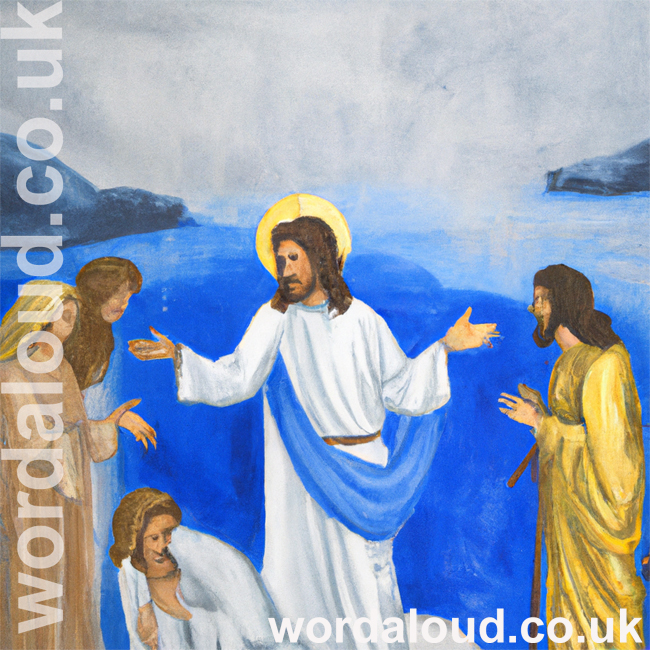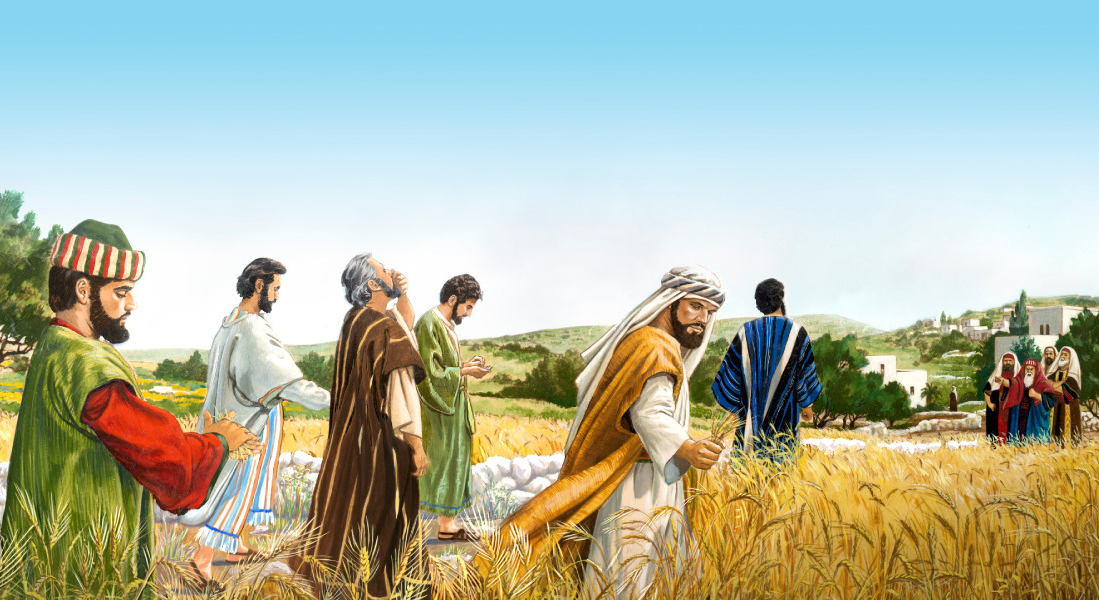Christian Art | Jesus is Baptized by John the Baptist
Luke 3: 15-16, 21-22 – The Baptism of the Lord (Year C) (Audio Bible, Spoken Word)
15 And as the people were in expectation, and all men mused in their hearts of John, whether he were the Christ, or not;
16 John answered, saying unto them all, I indeed baptize you with water; but one mightier than I cometh, the latchet of whose shoes I am not worthy to unloose: he shall baptize you with the Holy Ghost and with fire…
21 Now when all the people were baptized, it came to pass, that Jesus also being baptized, and praying, the heaven was opened,
22 And the Holy Ghost descended in a bodily shape like a dove upon him, and a voice came from heaven, which said, Thou art my beloved Son; in thee I am well pleased.
Today’s Bible reading celebrates two complementary affirmations of Jesus’ true identity, of Jesus’ divinity. The first is of John the Baptist, who came to prepare the way toward Jesus, teaching people an initial baptism of repentance, with water, such that they might be initially prepared to receive the Lord. The second is of God the Father and the Holy Spirit, the divine affirmation, that of heaven, the Father’s voice visiting Earth and the Spirit descending, as heaven bows to Earth, the Father to acknowledge His beloved Son as His Own.
John the Baptist acknowledges with joy that he merely heralds the way for an extraordinary transition. John the Baptist uses powerful, figurative language: he baptizes with water; Jesus will baptize with fire and the Holy Ghost. There is symbolism, a baptism with water to signify a confession of sins and the reality soon to come, matched with the complete reality of purging, of cleansing, and indeed the complete restructuring of reality.
The people crowd to listen to John the Baptist. John attracted an enormous multitude, each person longing for a sign of redemption, and hoping that the Messiah might come soon. Jesus emerges in these verses from the peoples’ midst. Jesus is one among many. We know that Jesus and John the Baptist knew each other since before they were born, and it seems probable that Jesus and John spent a lot of time during the first three decades of their life with one another. It is in this context that John the Baptist tells the people that one who follows him is the Messiah, rather as an older brother – though Jesus and John were cousins – might look after the younger, to protect and to nurture and to make sure that the fullness of Jesus’ reality will be seen and known.
With great love, Jesus comes to John to be baptized. The one without sin comes to John to ask that there be signified repentance of sin. We witness Jesus humbly embracing his human nature – that great union, God and man, is affirmed with such humility. Here is a model for us all – to put aside all greatness, how illusory in our case, and to follow our saviour, to submit to a surrender of pomp and show and to humble ourselves, as we hope for forgiveness and admit to God as to ourselves what we truly are.
Jesus’ example guides us. Here then is what happens: the Father’s voice sounds and the Spirit descends. Jesus takes us to this place, where we are baptized in spirit. It is strange that by humbling ourselves in this way we are copying the example of the most high. By stooping so low, we rise so high. We think of this as we renew our baptismal promises.
Jesus prays after his baptism. This teaches us that ‘after baptism, man needs to pray continually in order to enter heaven; for though sins are remitted through Baptism, there still remains the inclination to sin which avails us from within, and also the flesh and the devil which assail us from without.’ St Thomas Aquinas.
Almighty, ever-living God,
when Christ was baptized in the river Jordan
the Holy Spirit came upon him
and your voice proclaimed from heaven: ‘This is my beloved Son.’
Grant that we
who by water and the Spirit are your adopted children,
may continue stedfast in your love.
Through Christ our Lord.
![]()
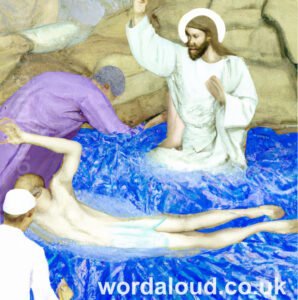
![]()

